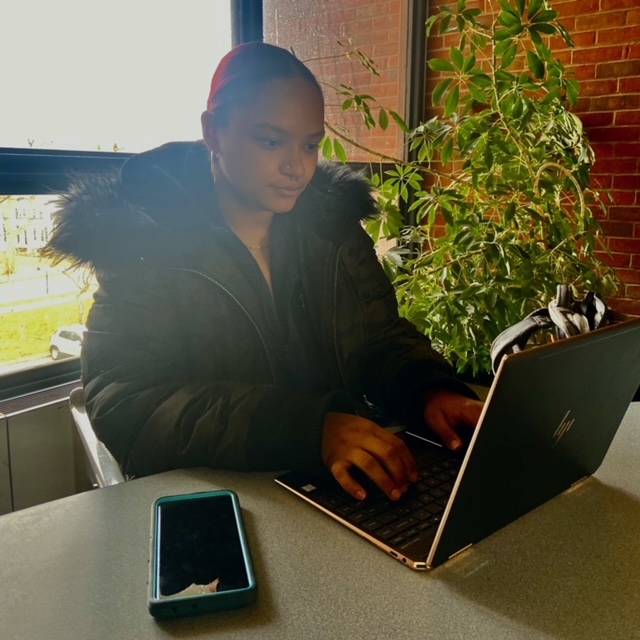
By Autumn Graney
Everywhere you go, everywhere you look, people are buried in their phones. The problem is it is affecting student’s health.
SUNY Brockport student Jezelle Sergenton uses her phone every day.
“I use my phone almost eight to ten hours a day. I often use my computer for six hours to complete assignments,” Sergenton said.

Experts say the excessive use of screen time can cause poor sleep, obesity, high blood pressure and poor stress regulation. When people are on their devices for long periods of time their mental health can be affected. Sergenton agrees.
“My screen time definitely affects my mental health. I often find that the screens disrupt my sleep schedule. My mind takes longer to shut down at night,” Sergenton said.
Experts say that poor mental health affects how people think, act, and feel. Students have a lot to manage in college. When their mental health is affecting them their concentration, energy, and work performance is affected.
Another student at Brockport who is constantly on their devices is Wanda Alicea. She is on her phone or computer all day. She uses them mostly for school and work.
“Staring at screens all day and even if you’re on your phone or computer it wears on your eyes, and you feel tired. The more you feel tired I feel like that affects how you feel about yourself and your self esteem and like you feel exhausted,” Alicea said.
Technology is hard to live without, but things can be done to manage how much time is spent on it. Some things students could do to manage screen time is taking time off and keeping track of screen time. By reducing screen usage students can focus better, improve sleep quality, lower stress, and reduce eye strain.
Associate Professor at SUNY Brockport Amy Gaesser emphases the importance of managing screen time.
“One of them is physical health. If you are on your screen to long you can have eye strains and neck strains so just getting up and moving around all of those things are important so you’re not getting headaches, you’re not getting eye fatigue, and long-term eyestrain. Mental health wise I think it’s important to because a lot of times when you’re just on a screen you’re not learning social skill engagement, you’re not learning how to read people’s nonverbals as much, so there’s a lack of empathy recognition. Sometimes there is a lack of understanding of personal boundaries and there is a quality of emotional engagement that doesn’t happen on screen,” Gaesser said.

Jezelle Sergenton is not the only person who is affected by the excessive use of screen time. People are buried in their devices no matter where they are and no matter where they go.





















